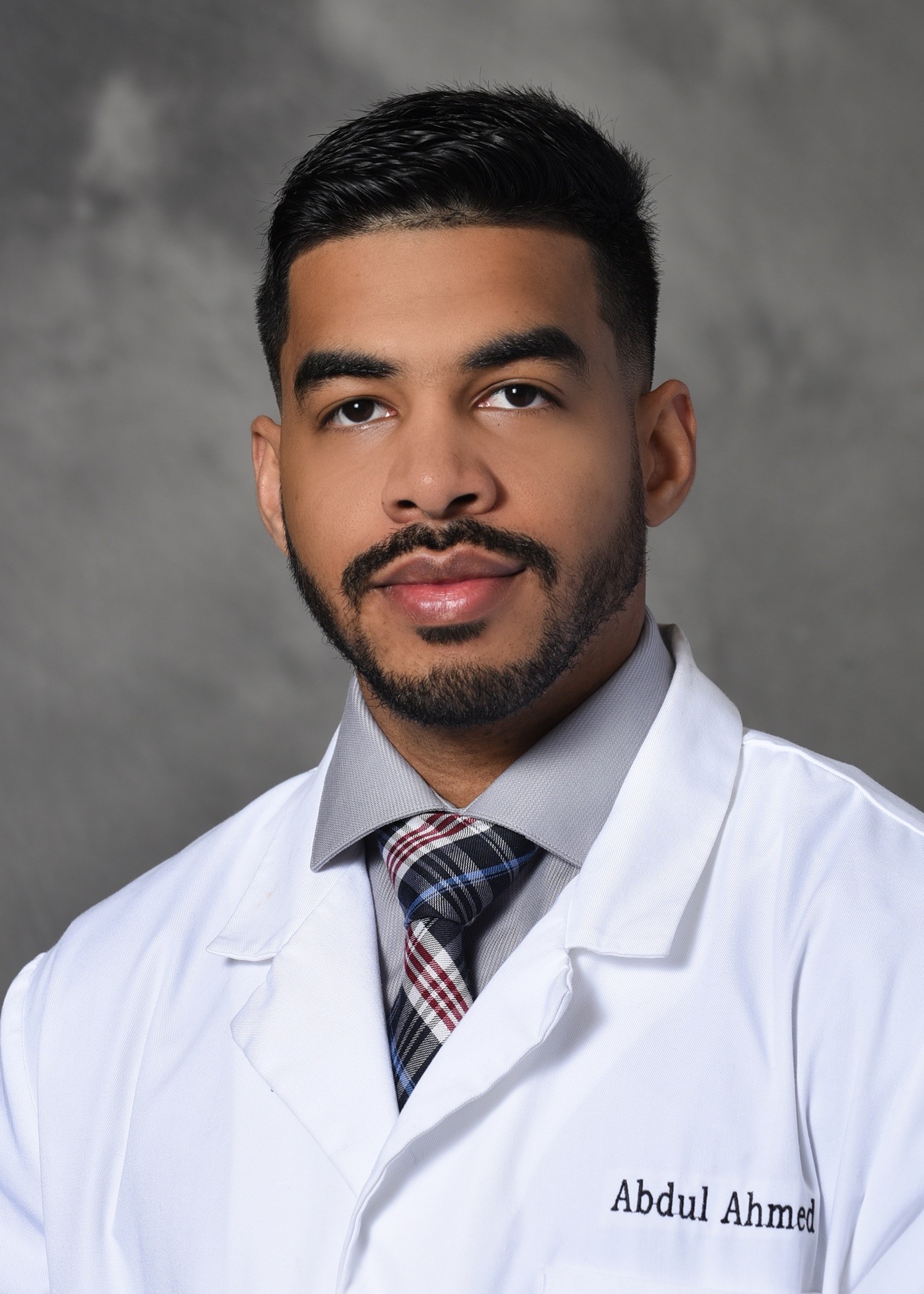The collaborative efforts of two graduates, a medical student, a fellow and a faculty member from the Wayne State University School of Medicine won a top award given to less than 5% of the 3,100 abstracts accepted at the American College of Gastroenterology Annual Scientific Meeting.

“Attitudes of Gastroenterologists Regarding Delivery of Cancer Diagnoses: A Cross-Sectional Study,” presented by the Class of 2021’s Abdelwahab Ahmed, M.D., now a first-year Internal Medicine resident at Northwestern University’s Feinberg School of Medicine McGaw Medical Center in Chicago, earned the Presidential Poster Award and was subsequently published on the college’s journal website.
To receive this distinction, the selection committee determined that the abstract constitutes high quality, novel, unique and interesting research.
The winning team also included the Class of 2021’s Shannon Zoulek, M.D., a first-year Internal Medicine resident at the University of Michigan; Mouhanna Abu Ghanimeh, M.B.B.S., an advanced endoscopy fellow at Henry Ford Hospital; and fourth-year medical student Arif Musa. Tobias Zuchelli, M.D., is the group’s faculty advisor and attending gastroenterologist at Henry Ford Hospital.
The poster detailed an anonymous questionnaire the team sent online to members of the American College of Gastroenterology assessing views regarding the delivery of cancer diagnoses. Colorectal cancer is the third most common form of cancer in terms of both prevalence and mortality in men and in women, respectively.
“Gastroenterologists commonly do colonoscopies as a way to screen for colorectal cancer, and are often responsible for delivering the news if cancer is diagnosed,” the Class of 2022’s Musa said. “How a patient receives this diagnosis can have a major effect on how they understand their condition, whether they seek treatment and how they view their relationship with their health care providers.”
Ninety-five percent of respondents preferred to deliver the diagnosis themselves rather than convey the news via an intermediary such as a referring primary care provider, Musa said.
Gastroenterologists mostly preferred to break the news of a cancer diagnosis in-person (72%). The remainder made phone calls (20%) to the patient or employed an open discussion with family members (7%).
Of note, most gastroenterologists were unfamiliar with evidence-based guidelines for delivering cancer diagnoses (76%). Most also had no formal training (56%) in this subject. The vast majority (78%) were interested in receiving further training regarding breaking bad news to patients. Most respondents were interested in online instruction (55%) but one-quarter supported in-person training (25%).
The team concluded that future directions should consider the incorporation of education in cancer diagnosis delivery for gastroenterology fellows and a potential gap that may be filled through the use of various educational materials.